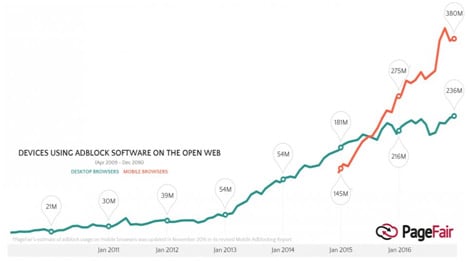Facebook’s was a ‘Perfect Storm’, but the Signs of ‘Algorithm Fatigue’ were Evident Long Ago
The issue of users’ private records being passed to third parties is not limited to the social media platform; it’s fundamental to the nature of how we currently see the Web
Yesterday’s news that Facebook had effectively handed over data from 87 million subscribers to a third party (GSR)1 which subsequently sold to Cambridge Analytica, and not the 30 million figure originally cited by the latter did little to change the overall narrative. Twenty million…100 million…the scale is incomprehensible to most of us, particularly when considering the level of personal data retained; bank details, phone numbers, audio conversations, ‘likes’, ‘pokes’, even private conversations.
The fact that Facebook is monetising user content (or, more precisely, behaviour) is hardly news; even the most naïve user would appreciate that no service can run on thin air, and those brilliantly targeted adverts require fuel from somewhere. I believe that the real outrage is a combination of factors:
The opaqueness of the privacy controls ensured that even the most informed user was unable to really understand the terms and conditions associated with the same.
These were presented across 8 pages and 14,000 words of fine print, which were impenetrable to most users. For a consumer product designed to ‘make the world more transparent’, this is bordering on consumer ‘entrapment’.
1. Facebook’s reluctance to engage publicly on the issue in a timely, transparent manner served to exacerbate the situation further. COO Sheryl Sandberg’s absence is even more notable; in any other company the COO would be leading the response to such an incident2; particularly since she is credited with creating the very advertising model behind the scandal.
2. I also believe that Facebook’s much lauded purpose – ‘to make the world more open and connected’ – has obscured the (equally laudable) commercial rationale for the company. Communities, which are transparent and share more frequently, are easier to monetise. There’s nothing wrong with this message, which underpins Facebook’s business model. In reality (and business terms) concepts such as ‘sharing’ and transparency’ are simply synonyms for ‘surveillance’ and ‘monitoring’, and probably should have been presented as such.
3. Finally, the fact that the data was used for political means in a series of highly polarised elections, apparently involving the influence of a third nation (Russia), added a more sinister note to the scandal. Perhaps, this was the critical factor; the fact that people may be willing to share their data at the cost of being bombarded adverts to influence their shopping decisions; the idea of their political views being similarly manipulated leaves most people scandalised and – importantly – deceived.
4. Combining the above, deception is the overriding sentiment associated with the Facebook/Cambridge Analytica revelations. People trusted the former, whose stated mission, after all, was simply to make the world more open. But the cost of such services to the consumer in terms of privacy may now be too much to bear.
5. The hidden costs of such free online services are not limited to Facebook; they actually define social media as it currently exists; it’s based on a trade-off between a user’s privacy and the perceived benefits they derive from a particular service. Only now, that trade-off is being brought into sharp relief.
I’ve written extensively on this idea of ‘algorithm fatigue’ over the last couple of years3; a phenomenon which corresponds precisely to the growth of ad blocking software present in today’s devices. The image below (courtesy of Page Fair4) speaks for itself.

I’ve spoken about prospect ‘clean feed’ apps, devoid of advertising or any form of traceability5, of the fact that brands who try and ‘game’ consumers into entering their timeline will be far less effective than those which take the trouble to listen to them and engage on their (the audience’s) terms.
If there is one unanticipated lesson from the Facebook scandal it is this: narcissism – gratification, recognition, perceived prestige is probably the primary driver of social media conversations, today. The sooner the brands recognise consumers as the protagonists and start engaging them accordingly, the greater value all parties will derive from such platforms as Facebook.
[1] https://www.ft.com/content/c4554e30-380e-11e8-8eee-e06bde01c544
[2] http://thehill.com/opinion/finance/381404-the-infuriating-invisibility-of-sheryl-sandberg
[3] http://blog.adfactorspr.com/perspectives/what-tinder-reveals-about-the-price-and-value-of-privacy/
[4]https://static-ssl.businessinsider.com/image/5890c508713ba11c008b5b52-960/pg5-%20devices%20using%20adblock%20software%20on%20the%20open%20web.jpg?_ga=2.164854076.269780960.1522989686-892078534.1517220089
[5] http://blog.adfactorspr.com/perspectives/communications-in-the-future-the-ability-to-actually-persuade-people-will-become-more-important-not-less/
.jpg?width=352&name=businessman-pointing-graphs-symbols%20(55).jpg)
-1.jpg?width=352&name=Untitled%20(30)-1.jpg)
-1.jpg?width=352&name=businessman-pointing-graphs-symbols%20(3)-1.jpg)